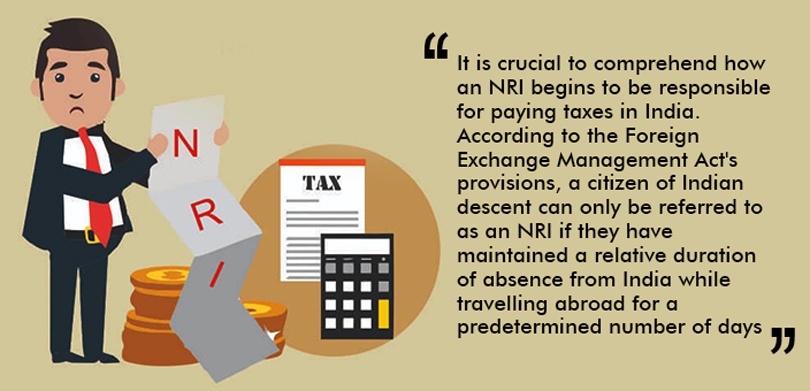Page Contents
Do NRI Have To Pay Tax in India?
NRI has invested in the Indian Real Estate sector for many years now. In India, taxes play a critical role in the country’s economy.
Various taxation is applied to the products and services that Indian citizens use. The purpose of taxation is to give consumers’ utilisation of services and goods a more favourable shade.
Although income received outside of India is not subject to any taxation, NRIs who rent out their property if they exceed the basic exemption amount must pay income tax in India.
In India, housing is not subject to tax. The rent amount will be treated as taxable income for NRIs.

Important Rules to Keep in Mind for NRI
- NRI income tax brackets are determined only by income, without consideration of a person’s age, gender, or another factor.
- Except in certain circumstances, there are no minor reductions in investment income.
- TDS is applied to all NRI income regardless of any limit set.
Also, read Rent Receipt And Its Role In Claiming Income Tax Benefits
What is the Tax Rate for NRI on Rental in India?
 If you are NRI and own a property in India then you are subject to paying taxes to the Indian government by the NRI marginal income tax rate.
If you are NRI and own a property in India then you are subject to paying taxes to the Indian government by the NRI marginal income tax rate.
Add the revenue from your holdings to the remaining of your personal income, such as your salary and capital gains, once it has been computed and received. You will then arrive at the amount that represents your actual income.
You are not subject to taxation if your entire income, including the rent from your Indian property, is lower than Rs 2.5 lakh. If not then a 31.2% source deduction will be made for any applicable taxes.
The revenue from your property won’t be subject to double taxation on your current residence if it has a Double Tax Avoidance Agreement (or DTAA) with India. A DTAA exists between India and about 90 nations, including the UK, Canada, the US, and Australia.
NRIs have the option of choosing between the current tax system and the new, lower-rate tax system.

What is the Tax Exemption Limit for NRIs in India?

The following Tax Exemption Limit for NRIs:
- The maximum limit on income tax for NRIs who pay tax is Rs. 2.5 lakh.
- NRI who choose the new, lower-rate tax system won’t be qualified for some deductions and exclusions. (like 80TTB, 80C, 80D, and HRA).
- NRIs are eligible for rebates and exemptions if they keep paying taxes by the current tax system.
How Much TDS on Rent Paid to NRI
 An NRI who owns property in India is subject to the same taxation laws as a resident.
An NRI who owns property in India is subject to the same taxation laws as a resident.
According to Section 195, the renter who pays the NRI in rent is responsible for the 31.2% TDS deduction. He or she must complete Form 15CA and transmit it electronically to the taxation division.
This tax rate is applied except if the NRI owner provides a certificate proving that his total revenue from India is less than the exemption threshold.
Also, read What is Rental Yields And Why It Is Important In Real Estate
FAQs
| Is rental income from abroad taxable in India?
A resident of India is required to pay tax on his worldwide income there. Therefore, rental income from homes located abroad that are rented out or considered to be rented is taxable in India. |
| How can NRI avoid TDS?
Opening a Non-Citizen Normal Rupee Account (NRO), a Foreign Currency Non-Resident Account (FCNR), and a Non-Resident External Account is the best approach for an NRI to avoid paying a significant TDS (NRE). |
| Why is TDS higher for NRI?
In India, money held in NRE as well as FCNR accounts is completely tax-free. NRIs who own these accounts are therefore exempt from paying TDS in India. |
| Do NRI pay property tax in India?
If you are an NRI and sell a home in India, the purchaser will deduct 20% as Long Term Tax on Capital Gains (TDS) for assets sold after 2 years. |








